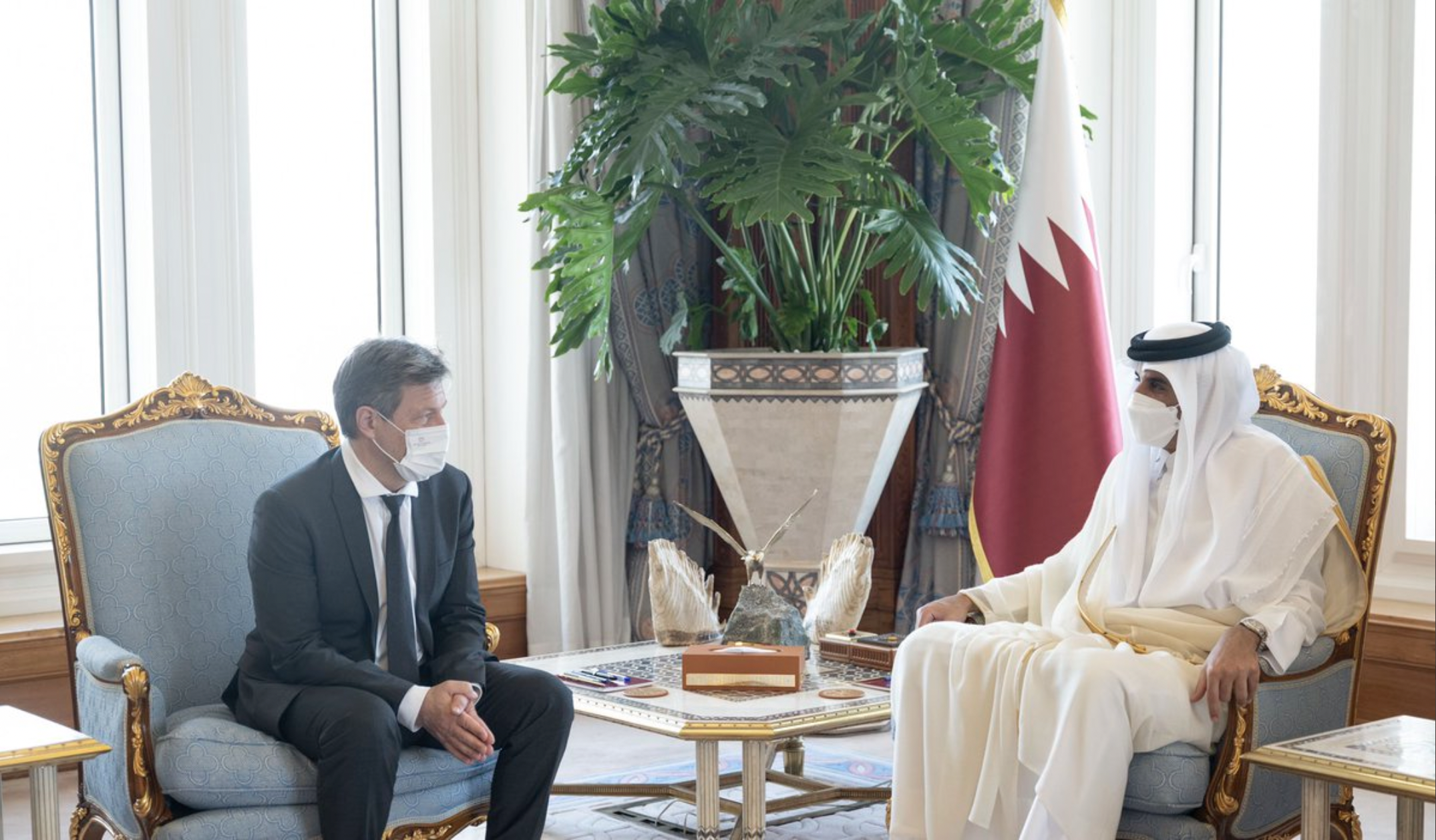Around half of Germany’s LNG imports are from Russia, making it the country’s largest supplier of gas.
Qatar’s Amir Tamim bin Hamad Al-Thani received Germany’s Economy Minister Robert Habeck on Sunday. They discussed ways to enhance the two nations’ bilateral relations, particularly in the energy sector.
This comes as Germany explores ways to diversify its sources of liquefied natural gas in a bid to make the country less dependent on Russia.
Habeck said that he will discuss his country’s liquified natural gas (LNG) supply during a trip to Qatar and the United Arab Emirates. This comes as Germany hopes to secure a hydrogen deal that will make it less dependent on Russia and fill a potential void.
About twenty high ranking business delegates from Germany accompanied Habeck on the trip. Many are from the energy sector.
Prior to his departure to Doha, Habeck expressed concerns about energy supplies for heating and electricity in Germany next winter.
“If we do not obtain more gas next winter and if deliveries from Russia were to be cut then we would not have enough gas to heat all our houses and keep all our industry going,” he said in an interview with Deutschlandfunk radio shortly before his departure to the Gulf countries.
Read also: Germany discusses energy cooperation with Qatar
Habeck also added that he will be discussing “short-term” LNG supply options in an effort “give the companies that ensure the gas supply in Germany the political framework to become independent of Russian gas, topics that could not be higher on the political agenda.”
Around half of Germany’s LNG imports are from Russia, making the latter the country’s largest supplier of gas, according to data on the Economy Ministry’s website.
Since the Russian invasion of Ukraine on February 24, several initiatives have been launched by Habeck to decrease Germany’s energy dependence on Russia. The initiatives included the country making large orders of non-Russian LNG, alongside plans for a terminal to import natural gas, making the country’s exit from coal smoother.
This goal is what prompted Habeck to travel last week to the famous gas powerhouse, Norway, and the US, the world’s top current global exporter.
Plans by the European Commission are underway to put an end to the EU’s dependency on Russian gas, oil and coal in the next five years. Qatar is seen as a key player the UE hopes will will the void caused by the loss of Russian oil and gas.
Earlier this year, Qatar was approached by US officials who inquired about the Gulf nation being a potential LNG supplier to Europe, in case of a Moscow invasion of Kyiv.
However, Qatar has made it clear that it will not be possible for it to be the sole replacement, stating that energy security “requires a collective effort,” as reported by Reuters.
Forty percent of Europes gas supply is from Russia as, while almost a third of the shipments pass through Ukraine. If an actual embargo is implemented by Russia on gas supplies to European countries, Germany and Italy would be especially “vulnerable.”
Habeck said that he plans on making Germany independent of Russian coal and gas in less than a year.
NATO allies are currently putting pressure on Berlin to boycott Russian gas and oil.
Follow Doha News on Twitter, Instagram, Facebook and Youtube







